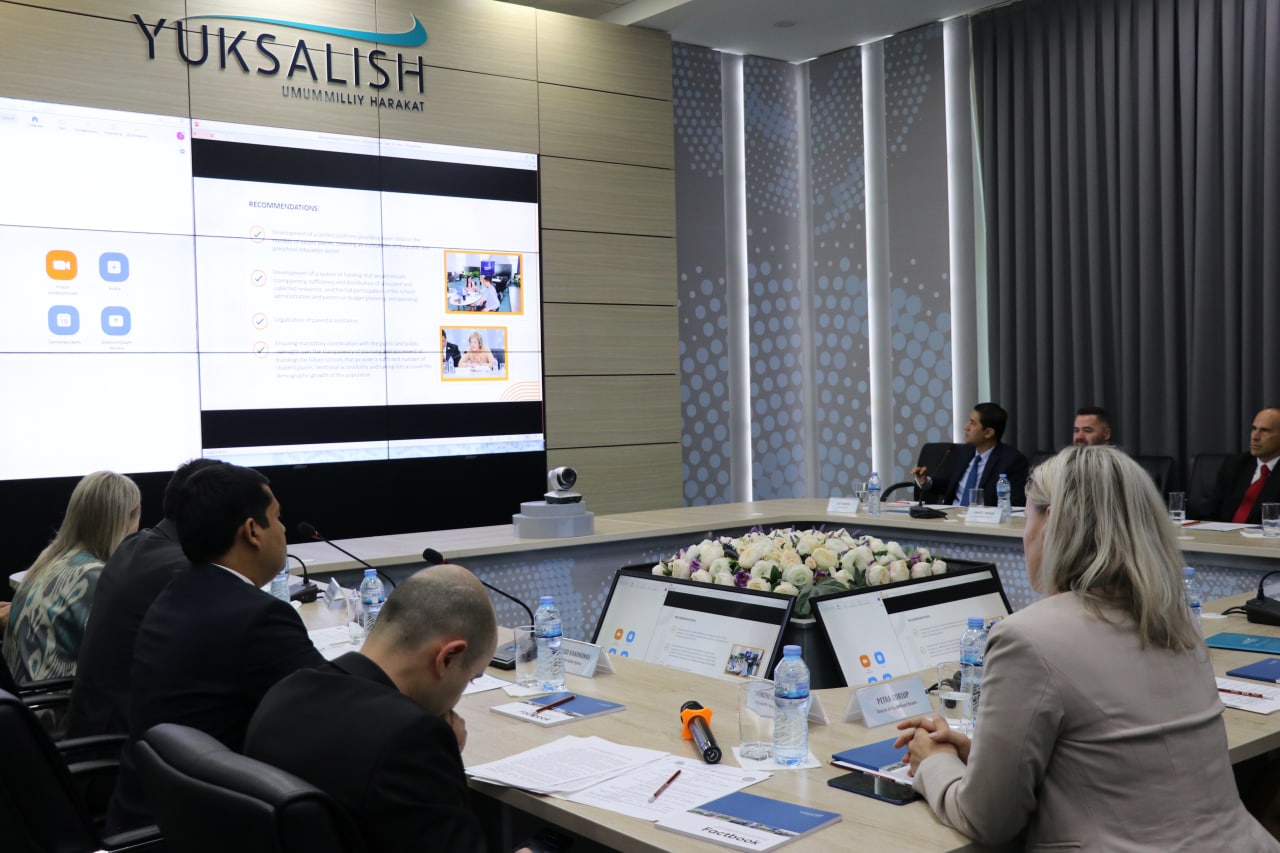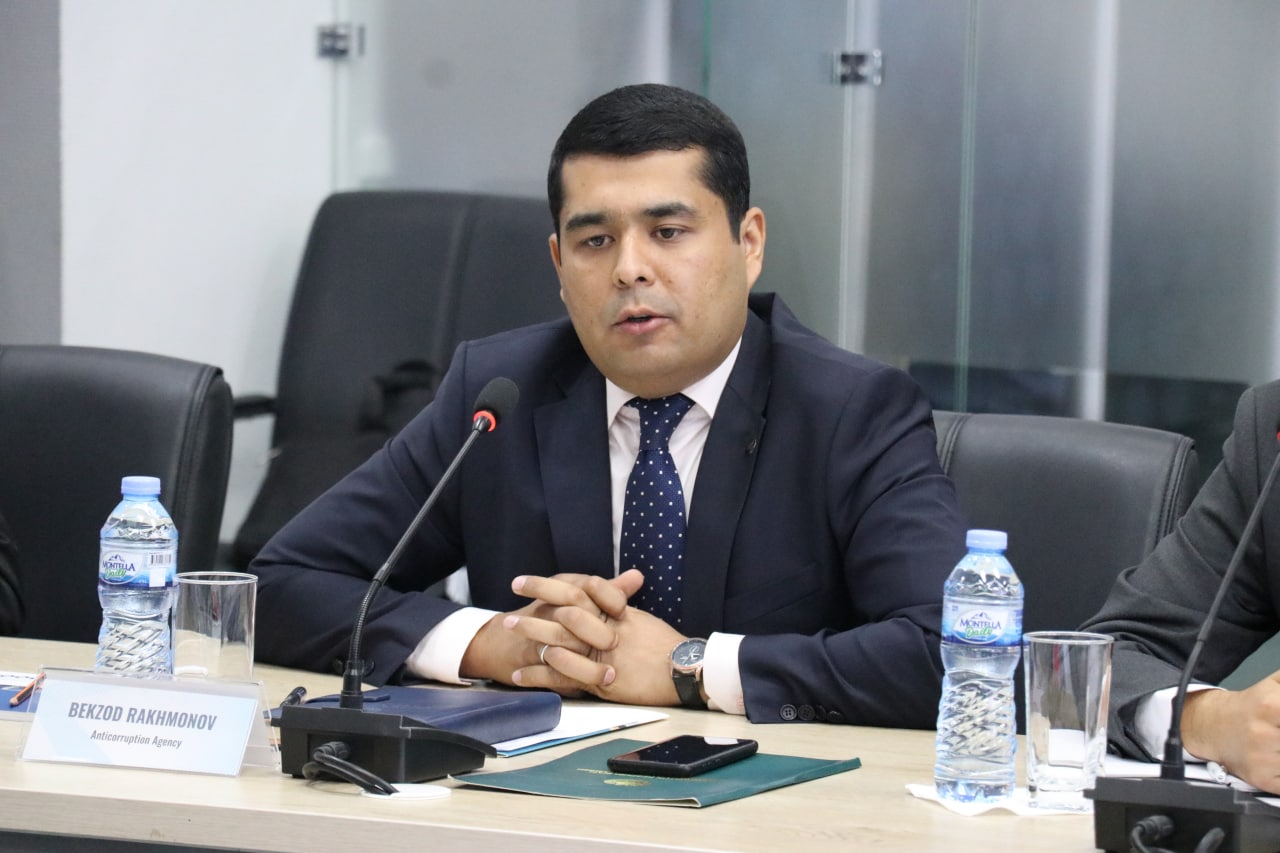From September 1, 2022, a procedure for mandatory assessment of corruption risks in the activities of public authorities and administration, including their territorial divisions, state unitary enterprises and institutions, as well as organizations with a state share of more than 50 percent, was introduced.
This September 14, a round table was held in Tashkent on the theme ‘Corruption and Integrity Risks Assessment in Uzbekistan’, which presented the assessment methodology and procedure.

The event was organized in cooperation with the Yuksalish Nationwide Movement and Regional Dialogue International Nongovernmental Organization, Slovenia, as part of the visit of Lisa A. Johnson, Deputy Assistant Secretary, the Bureau of International Narcotics and Law Enforcement (INL), the US Department of State, to Uzbekistan.
During the round table, the Anti-Corruption Agency officer Bekzod Rakhmonov made a presentation and provided detailed information on the implementation of the assessment processes and public announcement of the results.
In particular, the Methodology for identifying and assessing corruption risks, approved on this August 31, was discussed in detail. According to this Methodology, corruption risks are assessed by a government body annually by March 1. Corruption risks in the activities of a government body are determined on the basis of internal and external sources of information, and the level of corruption risks is assessed at low, medium and high levels.
According to the results, annually until February 1, a generalized map of corruption risks of a government body will be developed and posted on E-anticor.uz electronic platform.
On the basis of draft maps of corruption risks of government agencies and organizations posted on the platform, an electronic register of relations prone to corruption is automatically formed.
Every year, until March 1, the head of a government body approves a map of corruption risks and an anti-corruption program through E-anticor.uz electronic platform.

Also, as part of the round table, a presentation was made of the project ‘Launching the first anti-corruption laboratories in Uzbekistan’, which has been implemented since 2020 in cooperation with the Anti-Corruption Agency, the Yuksalish Nationwide Movement and Regional Dialogue International NGO.
It is noted that the initial experimental stage of the work of the Anti-Corruption Laboratory included the study of corruption risks in the admission of children to primary school at the national level.
The second stage provides for the assessment of integrity risk factors in the organization and operation of preschool educational institutions on the basis of public-private partnership. The study is planned to cover seven experimental areas and five target audiences involved in the public-private partnership process - about 370 respondents.
The round table participants also exchanged views on the possibilities of broadly involving civil society and expanding cooperation in the implementation of important measures aimed at combating corruption.
Press Office
The Anti-Corruption Agency







